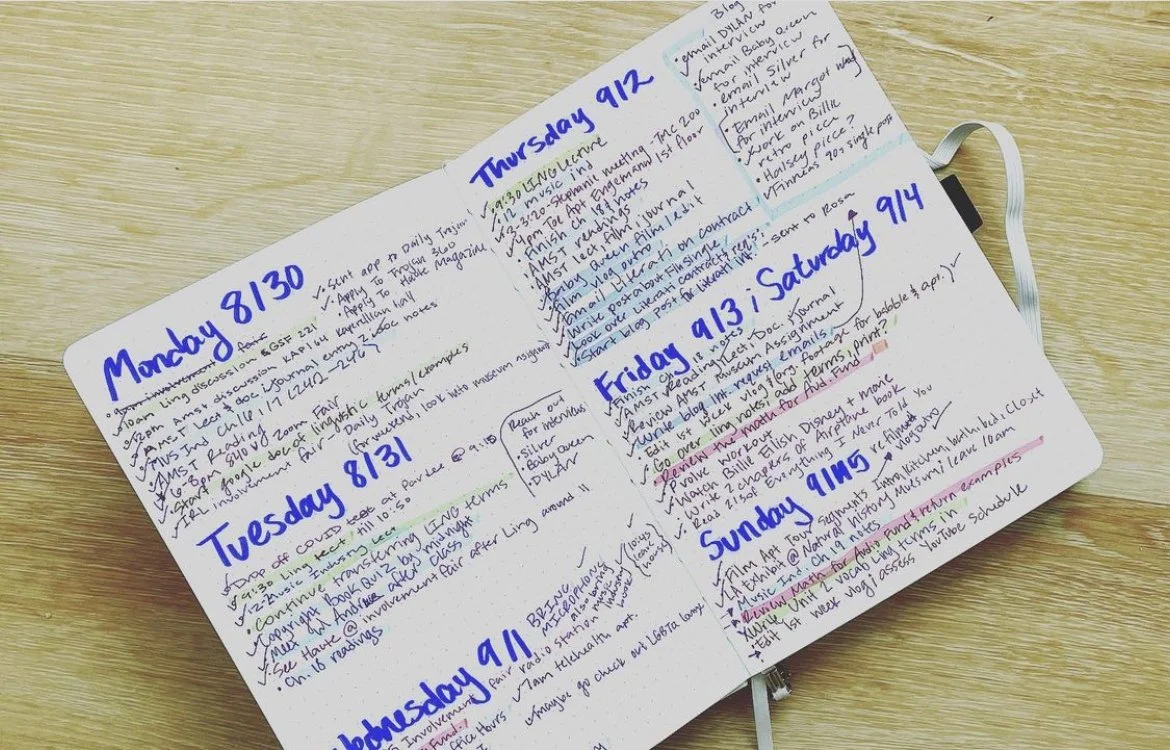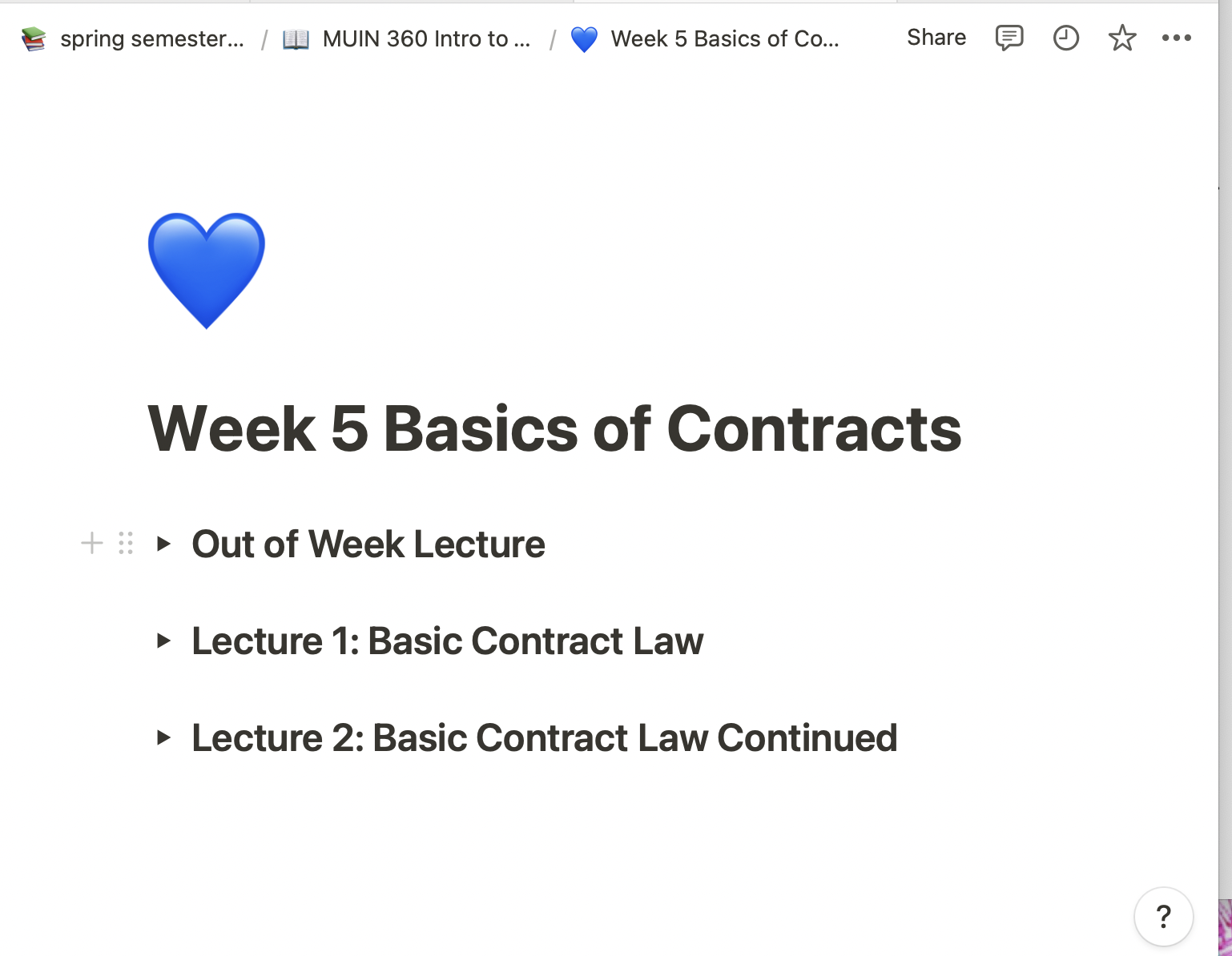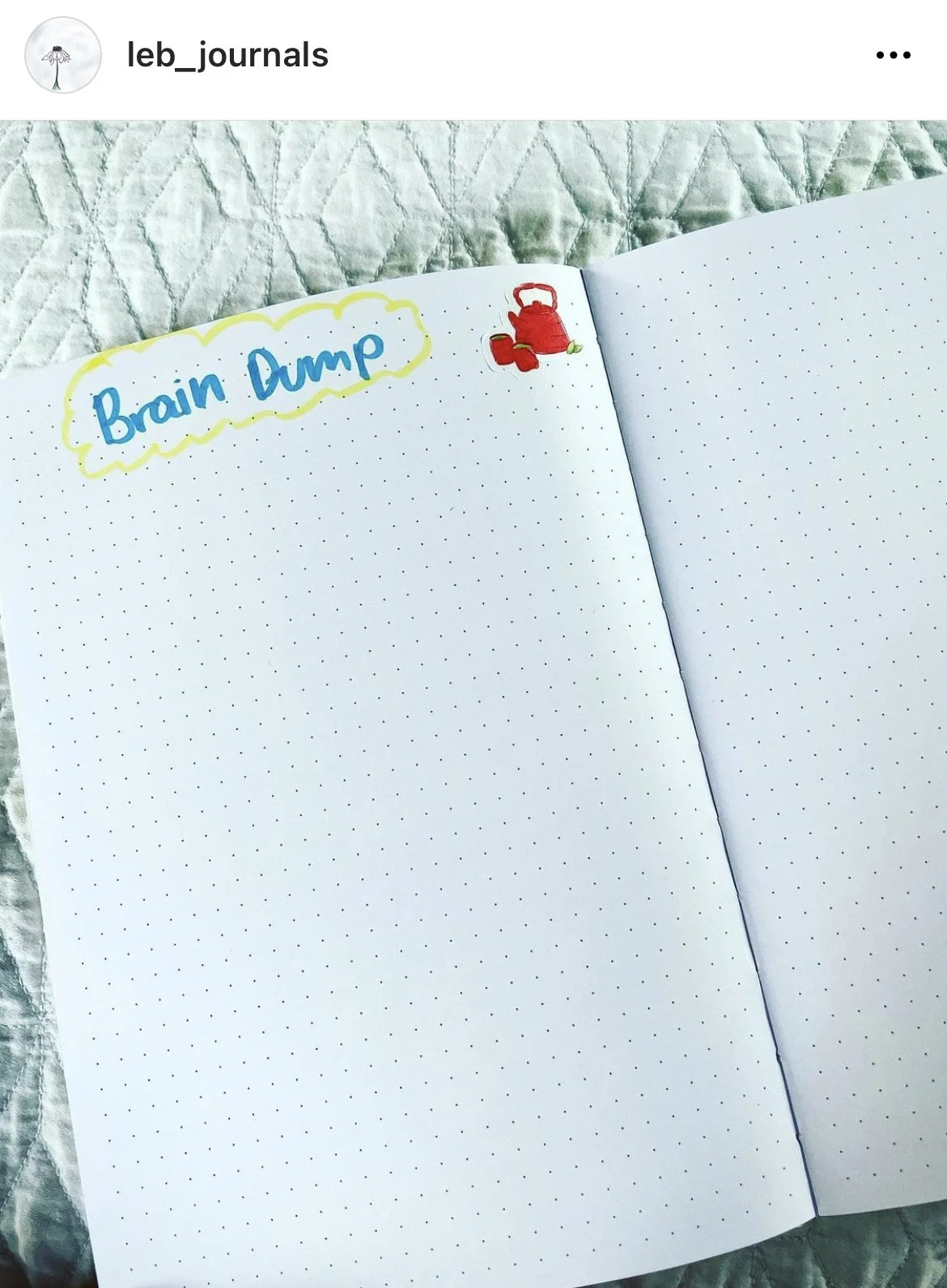It’s Midterms Season: Study Tips To Get You Through With As Little Pain As Possible
By: Lanie Brice ‘24
How is it nearly midterms season? Since I took my first major midterm test yesterday, I figured it was time to share the tips and tricks that have helped me through high school and college. From organization plans, to study methods, to essay writing tips, there should be something here to aid your midterm journey in whatever form it might take.
Make a Study Plan in Advance
Part of what makes midterms so chaotic is the fact that you’re not just taking one big test or writing one long essay, but you’re tackling a test and/or an essay in every class you’re taking all at once. It’s super easy to get overwhelmed, and it’s also highly possible you’ll forget one of the many tasks or assignments you have to do.
The best way to avoid both of those issues is to create a study plan once you start getting the final details of your upcoming midterms. This could be in the form of a table, Excel sheet, or even an assignment list in your bullet journal. Being able to turn your assignments, essays, and studying into smaller, incremental blocks makes it easier to take action.
If You Handwrite Your Notes in Class, Type Them (and Vice Versa)
One of my favorite ways to study is to rewrite my notes, either word for word, or by summarizing. When I try to reread my notes, my eyes tend to glaze over, but the action of having to copy often helps cement it into my brain. Also, rewriting allows you to reformat and create new forms of your notes that might be easier to study with.
In my most note-intensive classes, I handwrite my notes, so over the last few weeks I’ve typed up my notes into Notion (I have tons of Notion tips if this idea is intriguing) and organize them by subtopic. By the time I took my first test, I did well with a minimal amount of studying because I’d been working towards it for the entire semester. These active study practices make it much easier to know the material.
Don’t Underestimate the Power of Notecards
Notecards are my best friends for lengthy, memorization based tests. I make absurdly tall piles of notecards to review terms and examples, and like with typing up my notes, I find that by the time I’ve written out all the cards, I know the material so well I don’t have to do a ton of additional studying. If you do want to review though, this old school method is perfect for practicing active recall and spaced repetition, which are both common study tactics. This basically means that you have to recall the answers on the spot, from scratch, and that the questions get asked in tons of different orders so that you don’t accidentally memorize the answers for the order you were studying in instead of the actual content
Try Explaining the Concepts to a Friend, a Roommate, or Your Mom
One way to test if you truly know the material inside and out is if you can explain it in your own words, and in a succinct enough way that someone in your life will understand what you mean as a complete outsider. While this is dependent on finding someone who wants to help you study, it can even be helpful to summarize different topics out loud to yourself. Rephrasing in your own words can be a great final study test and can help identify any material you have a weaker understanding of.
Study In Short Bursts (Not All-Nighters)
The most productive studying happens when you’re fresh, so try not to cram at the last minute, or worse, pull an all-nighter when all you can think about is getting some sleep. Giving your full focus to studying for 15-20 minutes a day can go much further than one or two hours long sessions. Still, we all have super busy lives, and you might only have time on specific days or the weekends.
For that, I recommend blocking out your study time so that you rotate through a variety of different tasks, that way you can stay efficient and productive while giving yourself a break from certain material. You can also mix in essential tasks that give you a reason to get up from your desk. For example, you could rotate between typing up lecture notes for your law class, writing notecards for psychology, and doing a few dishes or sweeping (just to do something completely different) before cycling through again to finish up the tasks.
Tackle Essays in Phases
Having to choose a topic, do all the research, and write 5, 10, or 15 pages in a day or two is maybe impossible and certainly not pleasant, so make sure you get a head start on these major essays and break them into smaller tasks.
One of my biggest tips for essay writing is to format your in-text citations as you make notes. Every quote or summarized bullet point should come with its own APA or MLA style citation that you can copy and paste directly into paper because it saves so much time in the writing phase, and you won’t lose any important information you’ll need later on.
Want more from Trojans 360?
Visit Trojans 360 on Facebook & Twitter to stay up to date with more student content! You can also Ask A Trojan an anonymous question, and we’ll try to answer it in a future post. And don’t forget to follow us on Instagram!
Trojans 360 is USC’s official student-run blog. Content created by students, for students.




